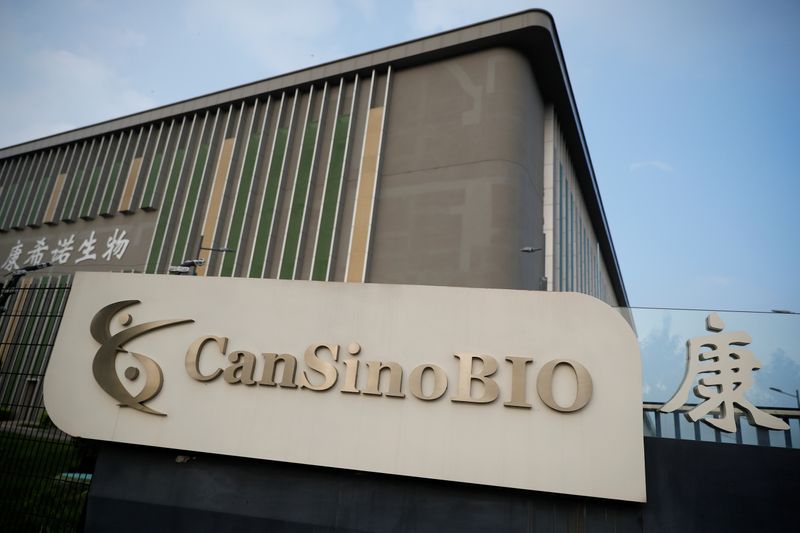By Reuters Staff
(Reuters) – China’s CanSino Biologics Inc said on Wednesday that no serious blood clot cases had been reported in people inoculated with its single-dose COVID-19 vaccine.
U.S. federal health agencies recommended on Tuesday that use of a similar one-shot vaccine from Johnson & Johnson be paused after six women developed rare blood clots.
CanSinoBIO’s shares fell as much as 13.7% and 18.4% in Shanghai and Hong Kong respectively. They pared losses to close down 6.3% and 7.7% each after the company issued a statement in which it said: “No blood clot related serious adverse events have been reported in around one million vaccinations of Ad5-nCoV.”
CanSinoBIO’s Ad5-nCoV vaccine is approved in China, Hungary, Chile, Mexico and Pakistan.
European regulators this month said they had found a possible link between AstraZeneca Plc’s vaccine and a similar rare blood clotting problem.
Several countries have since limited the AstraZeneca vaccine’s use to certain age groups, while the European Medicines Agency (EMA) said the benefits outweigh the risks.
Experts said clotting risks for both vaccines remain extremely low and they are highly effective in providing protection against COVID-19, amid concern that reports of the rare side effects could deter people from getting their shots.
“There are other vaccines in clinical use where rare side effects are reported – rotavirus, measles, yellow fever. Yet the vaccines save hundreds of thousands of lives,” said Jerome Kim, director general of the International Vaccine Institute.
“We are looking at rare events … Countries need to assess the risk of vaccination against the known risk of not vaccinating.”
COVID-19 vaccines from J&J, AstraZeneca, CanSinoBIO and Russia’s Gamaleya Institute use various adenoviruses as a vector to deliver DNA instructions for human cells to produce part of the coronavirus that can spur the immune system to recognise SARS-CoV-2.






















